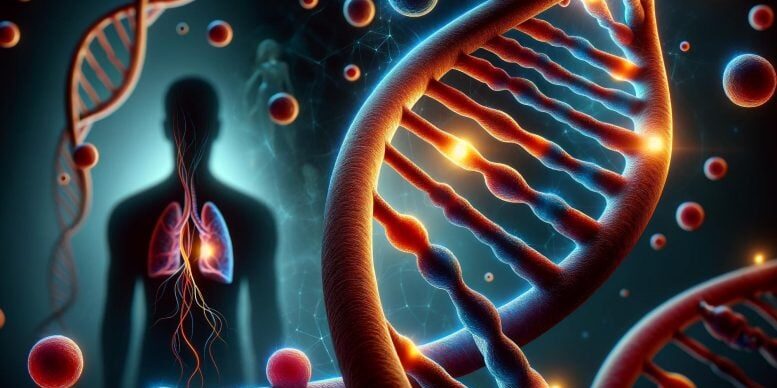The conventional wisdom has always linked the accumulation of genetic abnormalities to cancer, a powerful enemy that has long plagued the medical field. But a team of academics’ ground-breaking finding has disproved this long-held theory, illuminating a stunning alternate route to cancer’s onset that is controlled by epigenetic modifications rather than genetic changes.
The Mystery of Epigenetics
The study of inheritable variations in gene expression that do not affect the underlying DNA sequence, or epigenetics, has revolutionized our knowledge of how cells work. Historically, the focus on genetic mutations has overlooked this complex layer of regulation that controls gene expression and silencing.
But this groundbreaking study, using the common fruit fly (Drosophila melanogaster), has revealed an astounding finding: cancer may result from epigenetic dysregulation alone, refuting the conventional wisdom that genetic abnormalities are the only causes of this deadly illness.
The Path of Epigenetics in Tumorigenesis
By carefully manipulating Polycomb protein expression levels, which are epigenetic regulators that are essential for gene control, the study team was able to generate epigenetic dysregulation in Drosophila. Amazingly, a portion of the genome continued to operate abnormally even after the cells were returned to their normal form, therefore starting a tumor state that would spread on its own.
This ground-breaking finding implies that epigenetic modifications have the ability to permanently imprint a malignant identity on cells, enabling them to sustain and spread this abnormal state even in the absence of the original epigenetic trigger.
Consequences and Therapeutic Pathways
This groundbreaking finding has broad ramifications for our comprehension of cancer biology and the creation of innovative treatment approaches. Researchers may investigate novel approaches for targeted therapeutics that affect these epigenetic pathways, possibly providing more effective and individualized therapy choices, by realizing the critical role that epigenetic processes play in cancer.
This finding further emphasizes the significance of epigenetic profiling in the diagnosis and prognosis of cancer, as epigenetic abnormalities may be useful indicators for early diagnosis and disease surveillance.
Redefining the Causes of Cancer
This novel research casts doubt on the long-held belief that cancer is primarily a hereditary illness as we learn more about the complex interactions between genetics and epigenetics. It challenges us to go beyond the obvious and accept the complicated character of this disease, where epigenetic dysregulation may act as a catalyst unto itself.
Uncovering the epigenetic roots of cancer brings us one step closer to a more thorough understanding of its causes, potentially leading to the development of innovative treatment approaches and a time when a greater comprehension of the disease’s complex mechanisms may allow its unwavering hold to be released.



